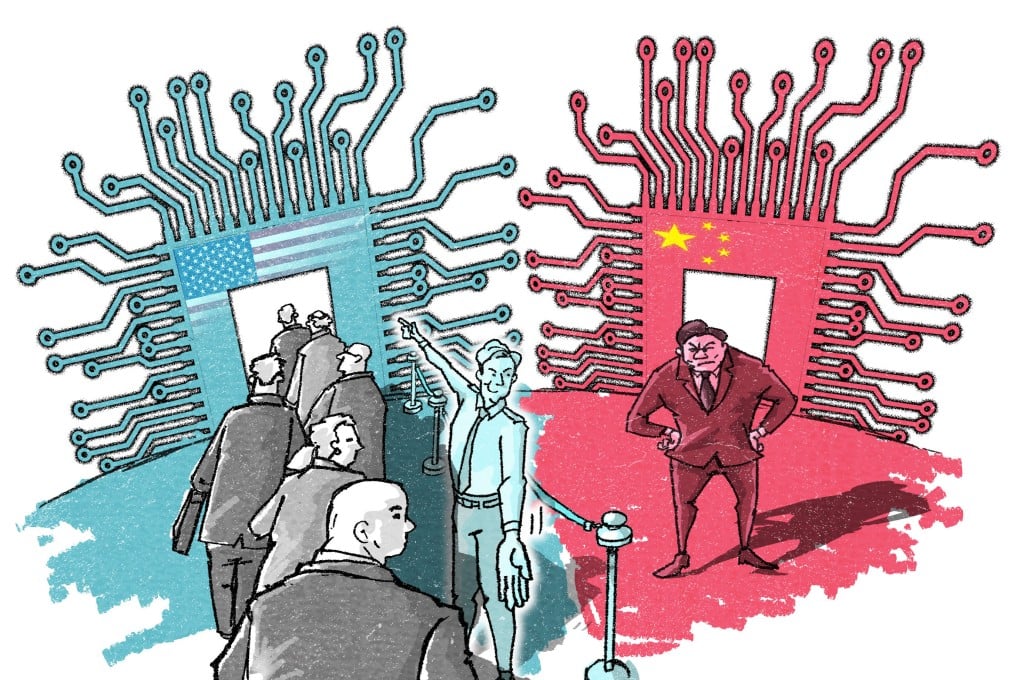Tech war: China’s push to forge a chip coalition in Asia falters as Washington expected to tighten the screws in 2023
- The past year has seen the emergence of a US-led coalition to thwart China’s access to advanced chips
- Beijing’s plan to use Europe as a counterbalance to US semiconductor export restrictions has faltered amid rising supply chain concerns there

Chinese strategist Wang Xiangsui published a book in 2017 entitled One of the Three: China’s Role in a Future World, in which he described a global future that sees three main blocs emerge: North America, Europe and pan-Asia.
Borrowing a page from Luo Guanzhong’s literary classic Romance of the Three Kingdoms, Wang says China will take on leadership of the pan-Asia bloc. “China should be happy to have one third of the world under heaven,” Wang said in an interview with the Observer, a Chinese nationalist website, in late 2020.
It is open to debate whether Beijing is setting its strategy on the musings of Wang, a professor at Beihang University, but what is clear is the leadership’s push for a regional supply chain to combat Washington’s move to curtail its technology ambitions. China has forged mechanisms such as “10+3”, namely the 10 Asean members plus China, Japan and South Korea, while lobbying Europeans – the third bloc – not to fall in line with US policy.
But the past year has seen the emergence of a US-led coalition to thwart China’s access to advanced chips – which power everything from the latest smartphones to advanced weapons systems. As Washington gradually builds up an export control regime targeting China, leveraging US advantages and influence, Beijing has looked increasingly isolated.
Wei Shaojun, a senior official at the China Semiconductor Industry Association, the state-backed group representing the domestic chip industry, said at an industry conference this week that China’s chip industry will not die overnight but it cannot achieve an easy victory in this battle.